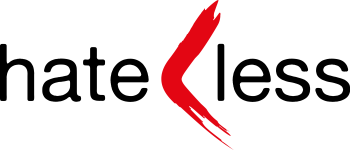HATE-LESS Training in Tallinn: Testing Tools to Counter Hate Speech and Disinformation
HATE-LESS – Harnessing Awareness to End Hate Speech and Disinformation for a More Diverse Youth using Media Literacy and Technology – is an Erasmus+ KA220-YOU cooperation partnership developing methodological guidelines and a practical, ready-to-use toolkit for youth workers.
The consortium met in Tallinn to move from draft documents to real-world practice, testing activities in live settings, comparing facilitation notes, and aligning on how to teach media literacy safely and inclusively to young people.
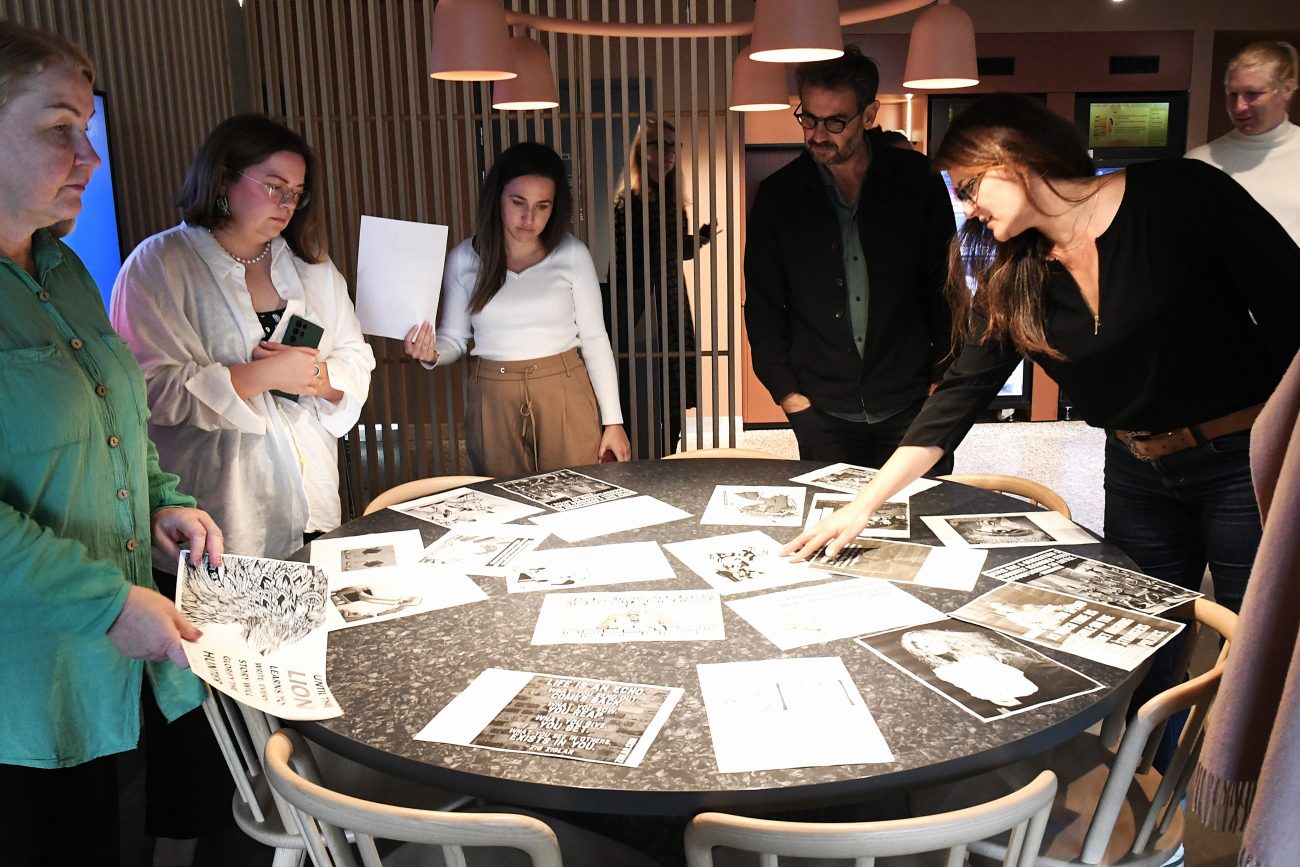
The training took place in Tallinn, Estonia, from 15 to 17 September 2025, hosted by EESTI PEOPLE TO PEOPLE. Besides the training session, participants also had field visits to ETV+ (Estonia’s national television channel), Delovye Vedomosti (a leading business newspaper) and the Riigikogu (Estonian Parliament). This blend of workshop and on-site learning ensured the project’s approaches were stress-tested against real editorial routines and media-education contexts.
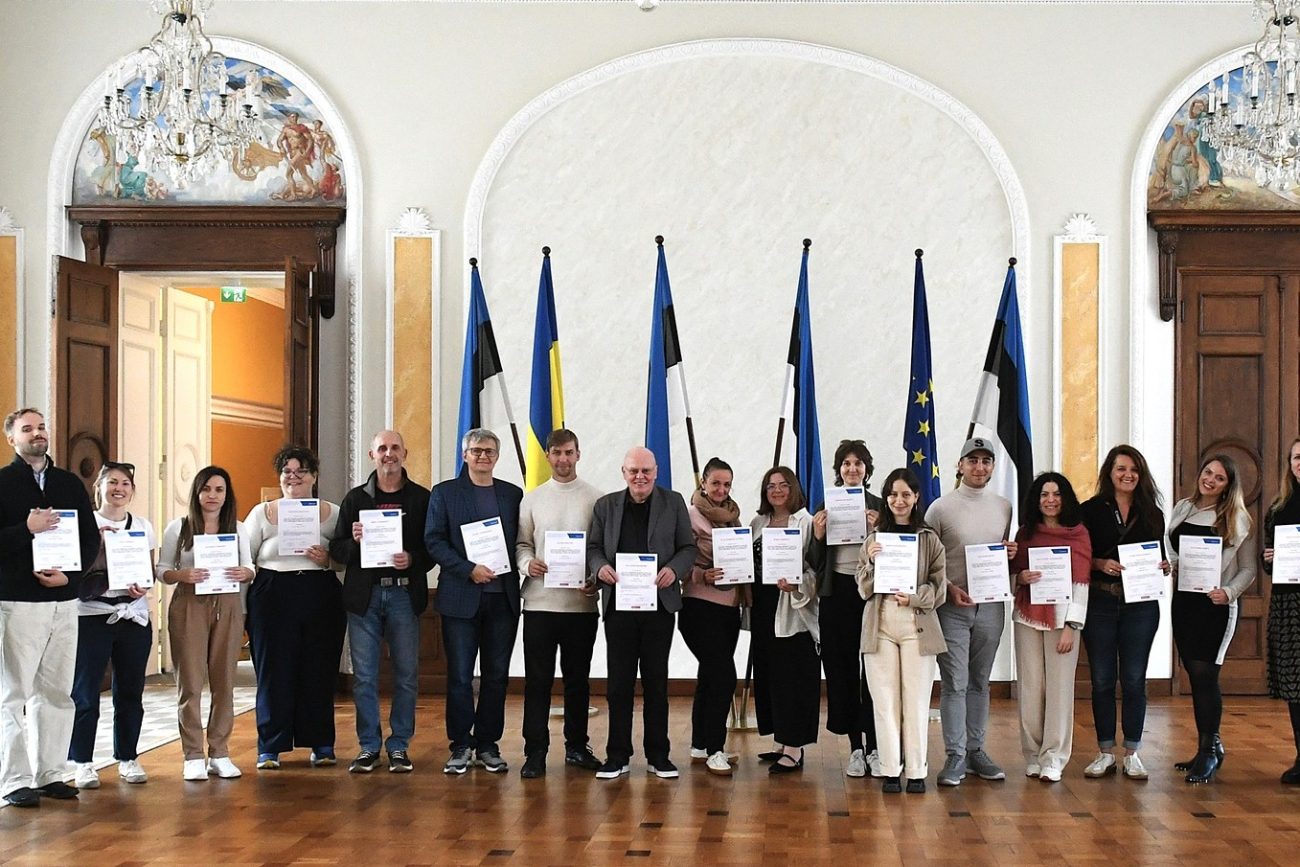
At the heart of the meeting was a shared commitment to deconstructing hate speech and disinformation in ways that are evidence-based and youth-led. Partners worked with the same guiding question – how can we help young people recognise manipulation, verify and contextualise information, and then produce counter-narratives that are constructive and locally relevant? To answer it, the group focused on a hands-on toolkit that turns the project principles into session plans and tools.
⇒ The first working day opened with a plenary review of the WP2 deliverables and the testing protocol that partners would use to collect comparable feedback on clarity, feasibility, timing and safeguarding.
- The German team led the first thematic block on participatory approaches in youth work, modelling co-creation from the very first minutes: collaboratively setting ground rules, using reflect–act–reflect cycles, and applying practical de-escalation moves that keep dialogue psychologically safe while acknowledging power imbalances.
- In the second session, Luxembourg introduced the Technical Guide for the Creation of a Participatory Video (Guidelines, Chapter 5) and walked partners through an experience simulating how a non-professional videomaker can lead the participatory video (PV) session. It also demonstrated how the tools can be used in an inclusive way with informed consent and transparency.
- Late in the afternoon, the group visited ETV+, where the head of the channel discussed topic selection, source checks, financing and policy-related questions.
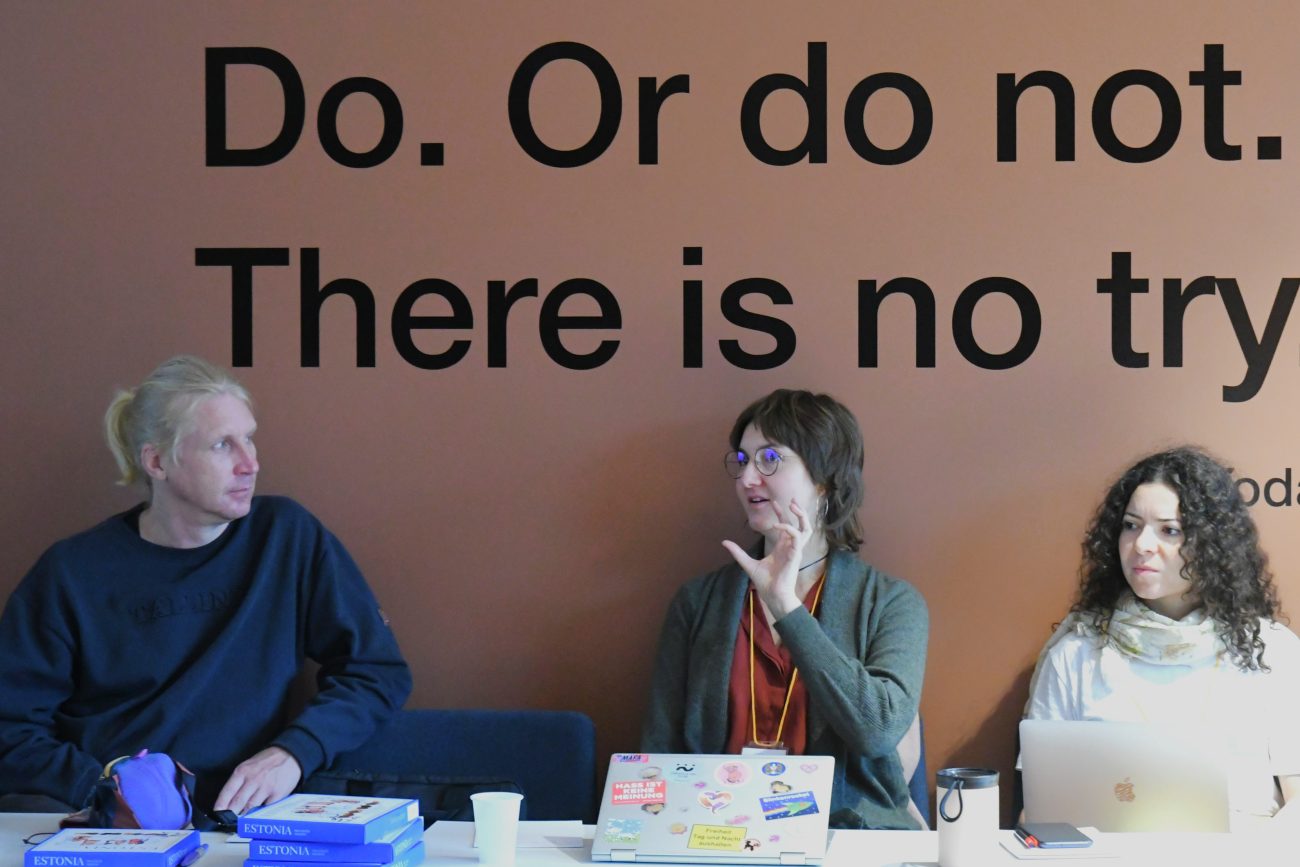
⇒ The second working day:
- It began with a Cyprus-facilitated session on How to Do Participatory Research with Youth. The session showed how to ground media-literacy outputs in youth-led inquiry.
- France then presented innovative practices and digital tools for addressing hate speech and disinformation.
- In the afternoon, partners met editors at Delovye Vedomosti to examine how economic misinformation spreads through cherry-picked statistics, misleading charts and faux expertise.
- A guided city walk with the host organisation closed the day, with reflections on local media ecosystems and community trust.
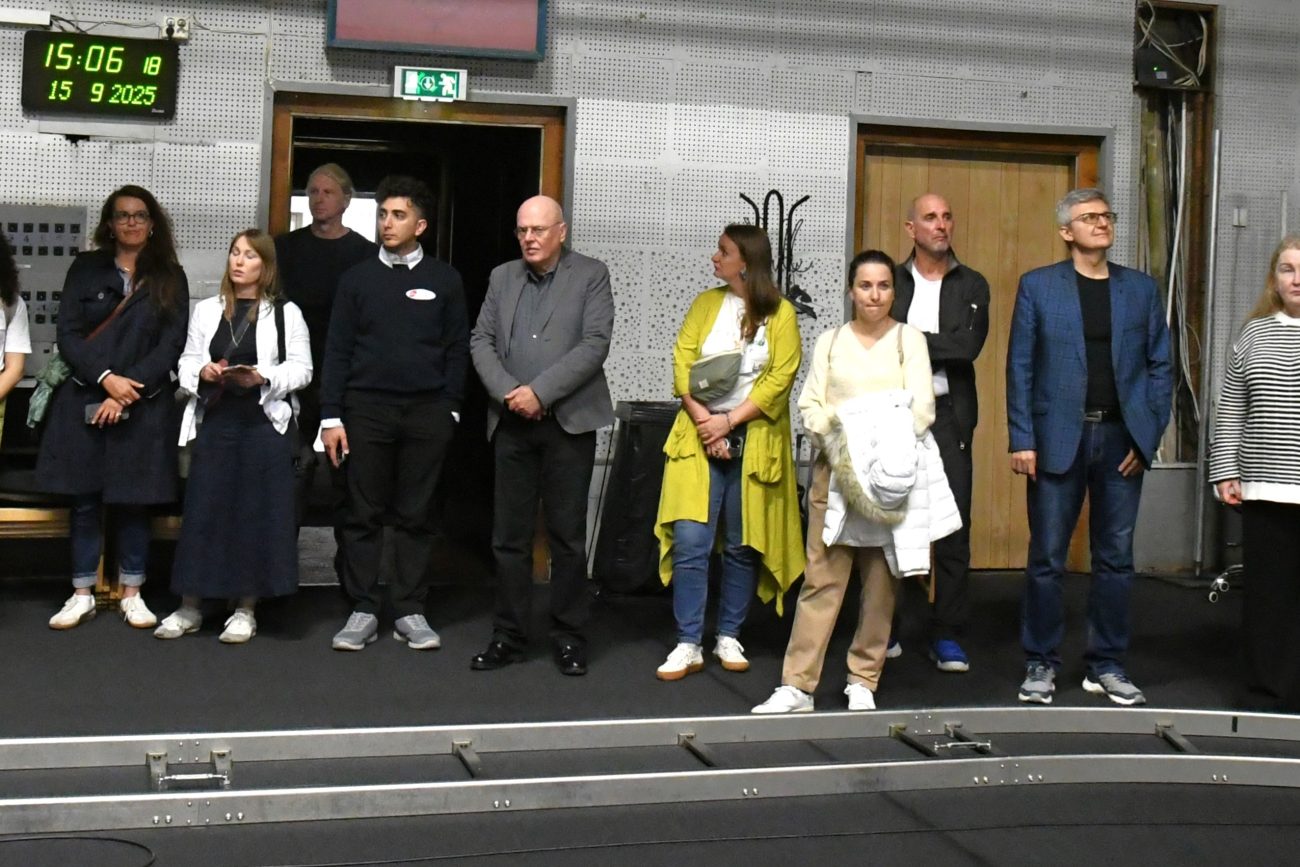
⇒ The third working day focused on consolidation and the next layer of practice.
- Spain led a session on innovative practices and digital tools, with micro-learning carousels.
- Estonia then guided “Facilitating Learning: From Guidelines to Training”, translating the document into complete training flows and showing how non-formal educational methods should lead the whole process.
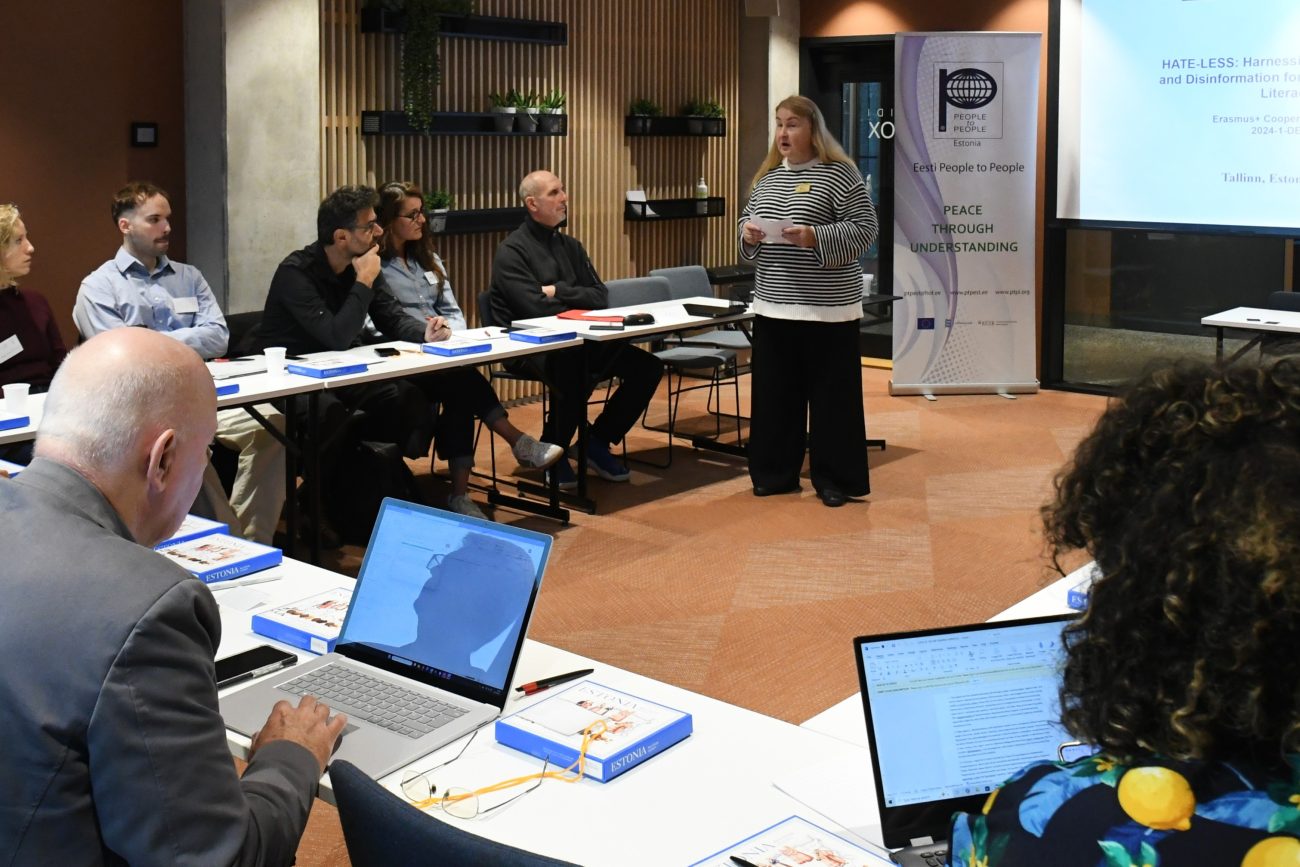
- The visit to the Riigikogu linked media-literacy training to democratic participation through discussions of institutional transparency, access to public information and the channels citizens can use to address hate speech within rights-respecting frameworks.
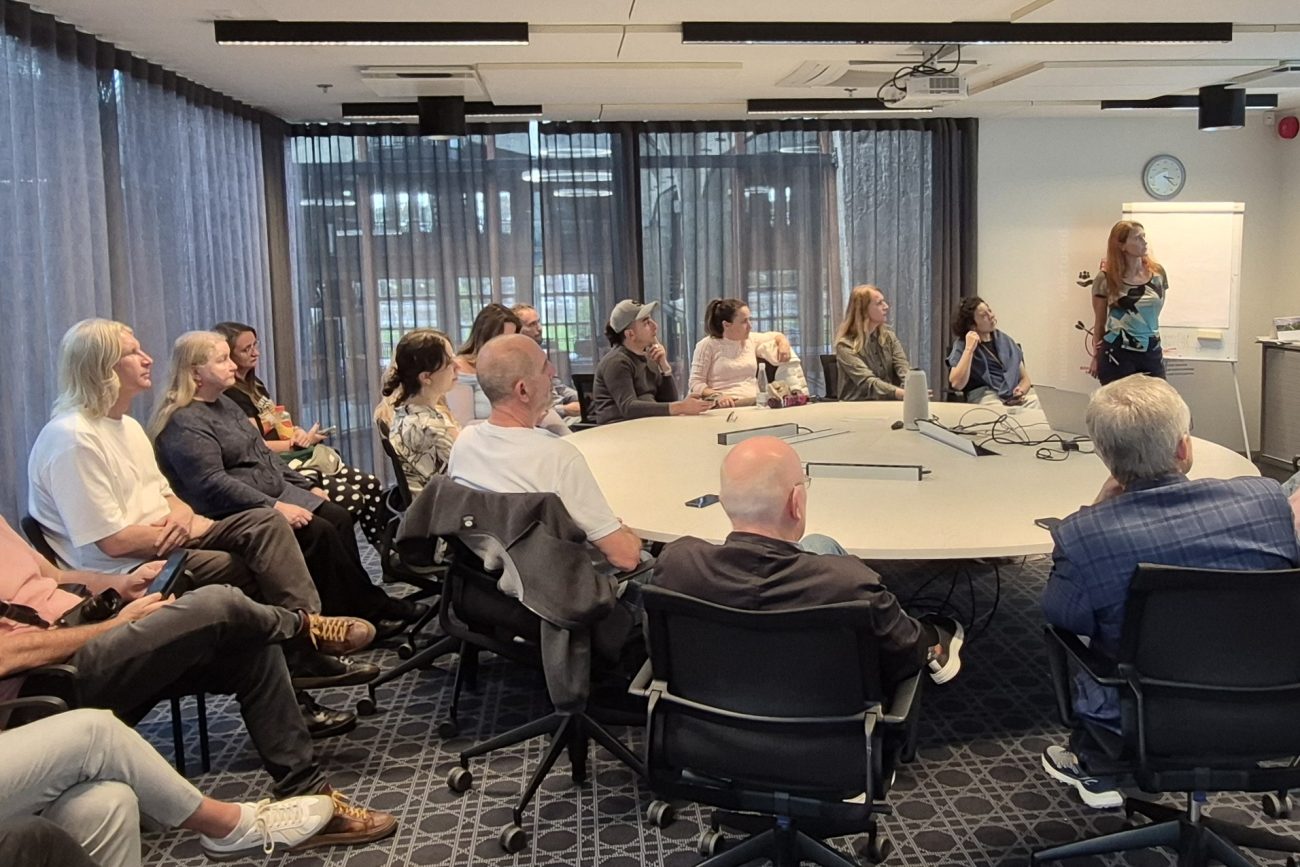
As an outcome of the training, the consortium will now integrate the change log, prepare national piloting and multiplier activities.
The project Hate-Less (KA 2024-1-DE04-KA220-YOU-000244181) is coordinated by EUROPEAN YOUTH4MEDIA NETWORK EV (Germany) with partners EESTI PEOPLE TO PEOPLE (Estonia), Formation et Sensibilisation de Luxembourg (Luxembourg), MITRA FRANCE (France), Evolutionary Archetypes Consulting SL (Spain) and WAVES FOUNDATION FOR GLOBAL EDUCATION (Cyprus).
The project HATE-LESS is co-funded by the European Union under the Erasmus+ programme.
Learn more: https://hate-less.eu

